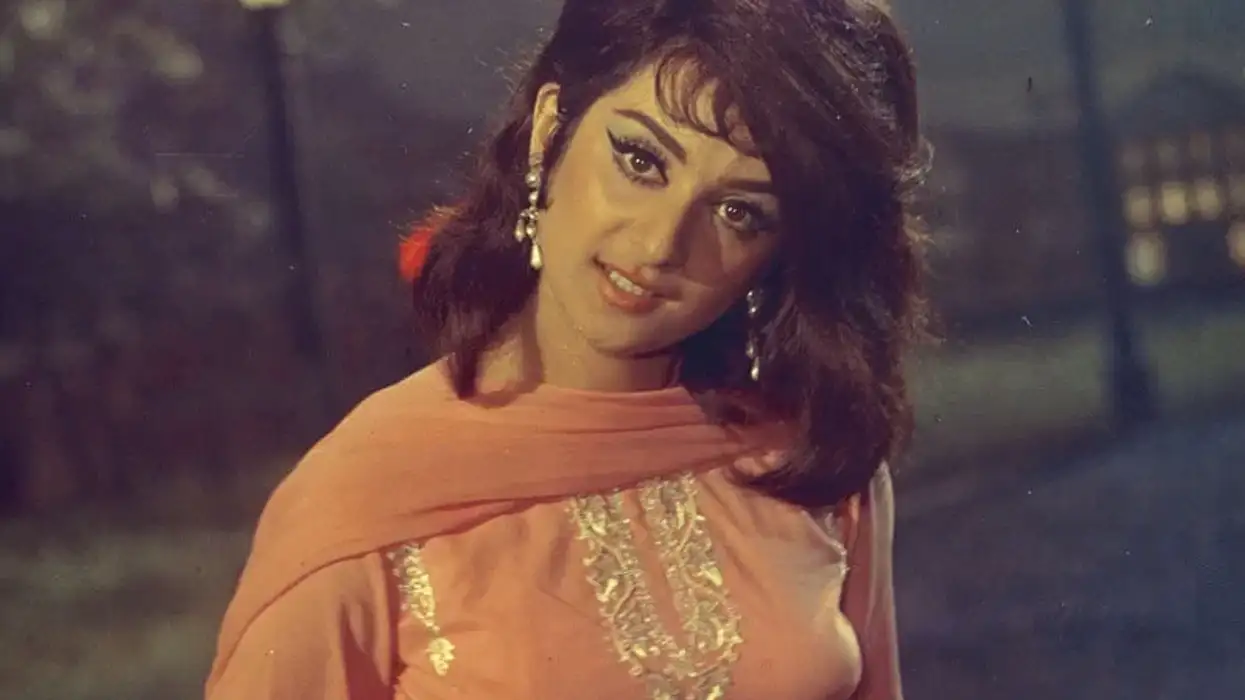LEGENDARY actress Saira Banu followed up a fantastic debut in the hit musical Junglee (1961), with a fabulous film career filled with blockbusters.
Her charm, beauty and striking screen presence were so alluring that she married Bollywood’s biggest star at the time, Dilip Kumar, and became one half of a formidable power couple.
Born in 1944, the Hindi cinema icon celebrates her 80th birthday on August 23.
Eastern Eye marks the milestone with 20 facts about her career and personal life.
Saira Banu is the daughter of legendary actress, Naseem Banu, famed for her stunning beauty and the star of super hits, like the 1939 classic, Pukar.
Her grandmother, Chamiyan Bai, was a famous singer and, according to some historians, a much-admired courtesan.
Growing up, Banu did her schooling in London and returned to India as a 16-year-old. She was offered high-profile projects from major filmmakers, including Kamal Amrohi, Ramanand Sagar, BR Chopra and S Mukherjee.
Yash Chopra had wanted to launch her in his hard-hitting drama Dharmaputra (1961) with Shashi Kapoor. Instead, she chose to debut opposite his superstar elder brother Shammi Kapoor in Junglee (1961).
Banu was only 16 when she made her debut in the super hit musical Junglee, which became the second-highest-grossing movie of that year and earned her a Filmfare best actress nomination.
Saira Banu and Shammi Kapoor in JungleeWhen the stunt double didn’t turn up for the Junglee song, Kashmir Ki Kali, it meant Banu had to do the water-skiing shot herself, with Shammi Kapoor skilfully piloting the speedboat. She said: “I said a prayer and just went into the water. He expertly manoeuvred the boat, allowing me to complete the surfing scene without any retakes. Meanwhile, my mother, Naseemji, fainted onto a chair out of sheer fright that I might drown in the deep waters.”
Her hit film, Ayee Milan Ki Bela, became the second-highest grosser of 1964.
Banu became one of the most glamorous stars of her era. Her many striking looks were styled by her mother.
Banu first fell in love with actor Dilip Kumar as a 12-year-old after she saw him in the movie Aan (1952). When she married the Bollywood superstar on October 11, 1966, she was 22 and he was 44 years old. They remained married until his death on July 7, 2021.
Saira Banu with her husband Dilip KumarDilip Kumar revealed in his 2014 memoir that his wife had become pregnant in 1972 with their son, but lost the baby during the eighth month of her pregnancy. After that, they never had children, believing that it was god's will.
Scheduling conflicts meant Banu could not feature in super hits Guide (1965) and Jewel Thief (1967).
She shot the Janmashtami song, Kanha Kanha Aan Padi, in Shagird (1967) coincidentally on the day of the festival.
Banu initially intended to retire from acting after marriage. One of the movies that helped reverse that decision was the cult classic, Padosan (1968), which has regularly made it onto lists of the greatest comedies ever made in India.
A still from PadosanHer patriotic drama, Purab Aur Paschim, (1970) inspired the hit 2007 film Namastey London.
Dilip Kumar had repeatedly refused to act with Banu in films, including the classic comedy, Ram Aur Shyam (1967), because he thought she was too young to be paired opposite him. They finally acted together in the hit film Gopi (1970), which she said was a dream come true for her, explaining: “Gopi will always be special to me all my life.”
Banu’s super-hit heist comedy Victoria No. 203 (1972) was later remade in multiple languages, including Telugu (Andaru Dongale), Tamil (Vairam), Kannada (Giddu Dada), Bengali (Chore Chore Mastuto Bhai), and Malayalam (Samrambham). The film’s climax inspired the 1994 comedy, Andaz Apna Apna.
Saira Banu with Dilip KumarShe received Filmfare best actress nominations for Junglee (1961), Shagird (1967), Diwana (1967), and Sagina (1974), but never won.
Amitabh Bachchan was the biggest star of the 1970s. Banu starred opposite him in the blockbuster, Hera Pheri, his biggest success in 1976.
Banu’s final film release was Faisla, which was released after multiple delays in 1988.
The cinema icon is active on Instagram (@sairabanu). She regularly shares stories from her amazing life with Dilip Kumar.




